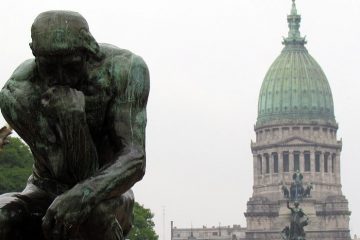
Argentina’s Midterm Elections: A Forecast
On Sunday, Argentina will hold highly significant midterm legislative elections in its 23 provinces as well as the federal capital of Buenos Aires. Cambiemos (Let’s Change), headed by the centre-right incumbent President Mauricio Macri, will look to expand its political mandate as the first non-Peronist government in 16 years. While seats will be up for grabs throughout the country, observers have placed most of their focus on the Senate race in Buenos Aires province, a predominantly working class region of Argentina that holds nearly 40 percent of the national electorate. Here, Macri’s current Minister of Education, Esteban Bullrich, is competing against former President Cristina Fernandez de Kirchner, who assumed office in 2007 as part of the Peronist ‘Front for Victory’ …

Trumped-up vs. Clintonesque: what text analysis can teach us about the US elections
The 2016 United States presidential election—or in John Oliver’s most recent definition: ‘lice-on-a-rat-on-a-horse-corpse-on-fire-2016’—has reached its final leg. As a political scientist and a computational text analyst, I cannot resist sharing my two cents on an election that has certainly broken a model or two. Following in the footsteps of two colleagues who recently produced two excellent articles (you can read them here and here), in this post I’d like to analyse a few examples of the exceptional language used in this elections cycle. Text analysis can help us understand two commonly held beliefs or facts (the distinction has become a bit blurred over the course of this year’s election cycle) about the US elections: Donald Trump is running a negative …

Six things you need to know about the recent Russian parliamentary elections
On Sept. 18, Russians went to the polls to elect the State Duma — the lower chamber of the bicameral Federal Assembly. In an earlier post, I set out what to expect from the vote. In this post, I discuss what to make of the results. The first session of the Duma’s seventh convocation will take place Wednesday. Here are six things you need to know. 1) United Russia, the pro-Putin “party of power,” won a supermajority. United Russia (UR) will take 344 out of 450 Duma seats. UR candidates secured pluralities in 203 of the 225 single-mandate races. The party also received 140 of the 225 positions that were elected via a nationwide contest, in which seats are assigned in proportion …
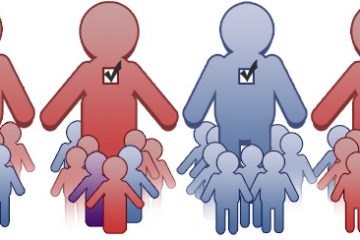
The Boundaries Review is a chance to bring back multi-member constituencies
In earlier generations voters were spoiled for choice. Between 1832 and 1885 many had more than one vote in general elections. The British parliament contained county and borough constituencies and these, depending on size, would return two to four MPs with voters able to vote for as many candidates as there were seats to be filled. A recipe for chaos, perhaps, but there were advantages to these multi-member constituencies. For instance, the Liberals could put up a left-wing radical as well as a traditional Whig, thus broadening their appeal to the electorate. [One wonders whether such an approach could appeal to the modern Labour party]. The upshot was that electors had a choice of which MP to turn to for …
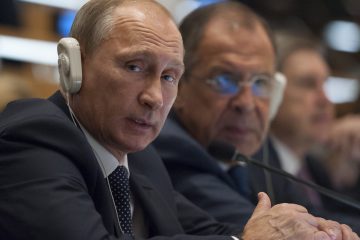
Russians will be voting on Sunday. Here’s what you need to know
Russian voters will elect 450 deputies to Russia’s State Duma on Sunday, in the seventh election for the lower chamber of Russia’s bicameral Federal Assembly since the legislature’s founding in 1993. Large-scale protests followed the last federal parliamentary elections on Dec. 4, 2011, after widespread reports of electoral fraud and rigged elections. Within days, an estimated 50,000 protesters across from the Kremlin were chanting “Russia without Putin.” This year, 14 political parties are taking part in elections that were moved forward from December to September. Observers from the Organization for Security and Cooperation in Europe will monitor the elections, which will return to a mixed electoral system last used in Russia’s 2003 federal elections. Half of the 450 seats will be decided by competitions in regional constituencies, technically known as …
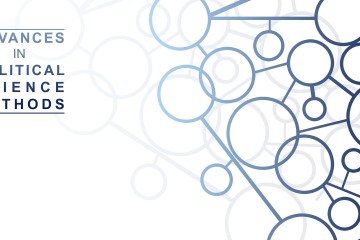
“I usually vote but I didn’t vote this time”: How to improve electoral surveys
How can we improve the quality of post-election survey data on electoral turnout? That is the core question of our recent paper. We present a novel way to question citizens about their voting behaviour that increases the truthfulness of responses. Our research finds that the inclusion of “face-saving” response items can drastically improve the accuracy of reported turnout. Usually, the turnout reported in post-election surveys is much higher than in reality, and this is partly due to actual abstainers pretending that they have voted. Why do they lie? In many countries, voting is a social norm widely shared by the population. In established democracies voting is considered a duty, and is part and parcel of being a “good citizen”. Public …

Why did the UK vote to leave the European Union?
It is not hard to see why Leave won. Evidence from numerous opinion polls showed that there was a clear majority for Leave on the basis of concerns about immigration and beliefs that leaving would reduce immigration. Moreover the same opinion polls showed us that there was no compensating majority who believed that the UK would be worse off if we left. Still less did people feel that they personally would be financially worse off. For further details see here. Although it should not have come as a surprise that Leave won, the result was close enough that it could easily have gone the other way. There will be much debate as to whether the Remain side could have made their …
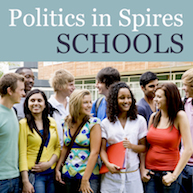
‘We were just using different words to mean the same thing’: Exploring the affective norms of political party manifestos
This is a research project that aspires to measure and understand the affective norms of political discourse. We already know that political parties propose policies to persuade the electorate. In fact, all else being equal, the party developing the most persuasive set of policies will win the election. But, we also know that persuasion is not only about numbers, policy proposals and goals. Rhetoric has an affective aspect that is difficult to measure and understand. How do political parties present their policies to make them more appealing and persuasive? And, how can political scientists extract these pieces of information? With respect to the first question, we argue that on top of the programmatic content of political texts, political parties use emotional appeals to convince that their policies are superior. To measure that we examine how affective political rhetoric is through a content analysis of political language.









